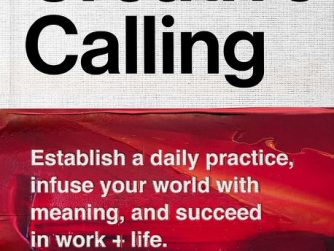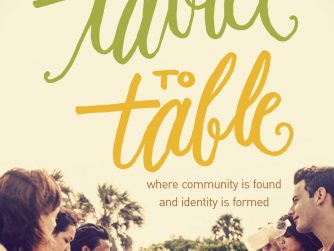Try out a few of these reads I’ve been munching on this month:
1. Consuming Jesus: Beyond Race and Class Divisions in a Consumer Church by Paul Metzger
Many Americans think racialization was dismantled along with the Jim Crow legislation that once sustained overt structures of segregation. Unfortunately, today we live under an updated version of segregation, through the subtle power of unchallenged norms of consumer preference. Consumerism affects even the church, reinforcing societal race and class divisions. Intentionally or unintentionally, many churches have set up structures of church growth that foster segregation, like appealing to consumer appetites. Paul Metzger here argues that the evangelical Christian church needs to take the lead in admitting this fault and making the change away from racial and consumer segregation. In addition to sensitivity to structural concerns and the restructuring of key theological themes, critical attention is given to analyzing the prevalent iconography that shapes Evangelicalism. Challenging ways that consumerism fosters ethnic and economic divisions that distort evangelical Christianity, The Consumer Driven Church offers a theologically grounded call to the restructuring of passions, practices, church polity, and priorities, and to the refiguring of the evangelical theo-political imagination around a nobler vision.
2. The Drama of Doctrine: A Canonical Linguistic Approach to Christian Doctrine by Kevin Vanhoozer
Observing a strange disappearance of doctrine within the church, Kevin Vanhoozer argues that there is no more urgent task for Christians today than to engage in living truthfully with others before God. He details how doctrine serves the church–the theater of the gospel–by directing individuals and congregations to participate in the drama of what God is doing to renew all things in Jesus Christ. Taking his cue from George Lindbeck and others who locate the criteria of Christian identity in Spirit-led church practices, Vanhoozer relocates the norm for Christian doctrine in the canonical practices, which, he argues, both provoke and preserve the integrity of the church’s witness as prophetic and apostolic.
3. Luke: The Gospel of Amazement by Michael Card
Michael Card embarks on an imaginative journey through the Gospel of Luke. He introduces us to Luke the historian and imagines his life as a Gentile, a doctor and a slave. Card explores Luke’s compelling account of this dynamic rabbi who astounded his hearers with parables and paradoxes. What might Luke have experienced as he interviewed eyewitnesses of Jesus? What leads Luke to focus on the marginalized and the unlikely? Why does Luke include certain details that the other Gospel writers omit? Join Michael Card in the work of opening heart and mind to the “Gospel of Amazement.”
4. Cognitive Surplus: Creativity and Generosity in a Connected Age by Clay Shirky
In his bestselling Here Comes Everybody, Internet guru Clay Shirky provided readers with a much-needed primer for the digital age. Now, with Cognitive Surplus, he reveals how new digital technology is unleashing a torrent of creative production that will transform our world. For the first time, people are embracing new media that allow them to pool their efforts at vanishingly low cost. The results of this aggregated effort range from mind-expanding reference tools like Wikipedia to life-saving Web sites like Ushahidi.com, which allows Kenyans to report acts of violence in real time. Cognitive Surplus explores what’s possible when people unite to use their intellect, energy, and time for the greater good.
5. A Framework for Understanding Poverty by Ruby K. Payne
People in poverty face challenges virtually unknown to those in middle class or wealth–challenges from both obvious and hidden sources. The reality of being poor brings out a survival mentality, and turns attention away from opportunities taken for granted by everyone else. If you work with people from poverty, some understanding of how different their world is from yours will be invaluable. Whether you’re an educator–or a social, health, or legal services professional–this breakthrough book gives you practical, real-world support and guidance to improve your effectiveness in working with people from all socioeconomic backgrounds. Since 1995 A Framework for Understanding Poverty has guided hundreds of thousands of educators and other professionals through the pitfalls and barriers faced by all classes, especially the poor. Carefully researched and packed with charts, tables, and questionaires, Framework not only documents the facts of poverty, it provides practical yet compassionate strategies for addressing its impact on people’s lives.
6. Hungry for God: Hearing God’s Voice in the Ordinary and the Everyday by Margaret Feinberg
In your heart you feel the longing—an emptiness that can’t be satisfied by food, or friendships, or entertainment, or success, or anything this world can offer. Only God can fill the void. More than you know, you hunger for God.In Hungry for God, critically acclaimed author Margaret Feinberg puts you in touch with your desire for intimacy with your Creator and what it takes to find fulfillment. Feinberg writes, ‘The sound of his voice is spiritual nourishment, his voice a banquet for my soul—every syllable a tasty morsel, every expression flavored with love.’With rare insight into the Scriptures, human nature, and the heart of God, Feinberg invites you to discover the ways in which God speaks to you not from the top of some holy mountain, but in the midst of your everyday affairs. Learning to hear God’s voice isn’t as much a destination as it is a journey, and if you travel far enough, you’ll find yourself abiding in the presence of God. Passionate, honest, and filled with wisdom and inspiration, Hungry for God will help you cultivate the holy intimacy your spirit craves.
7. Evening Train by Denise Levertov
In the title poem of this collection, Denise Levertov again demonstrates the arresting imagery that has characterized her poetic career. Our unchanging perception of self, she writes, is “the dimension / that moves with us but itself keeps still / like the bubble in a carpenter’s level.” The image does a lot of poetic work for her, suggesting the way the self is constructed, with hidden flaws, faintly remembered blueprints, and room for repairs and revisions. A number of these poems bring to mind Eliot’s old term “objective correlative,” and rewards the reader’s attention with hypnotic language. Here is a longtime favorite at top form.



